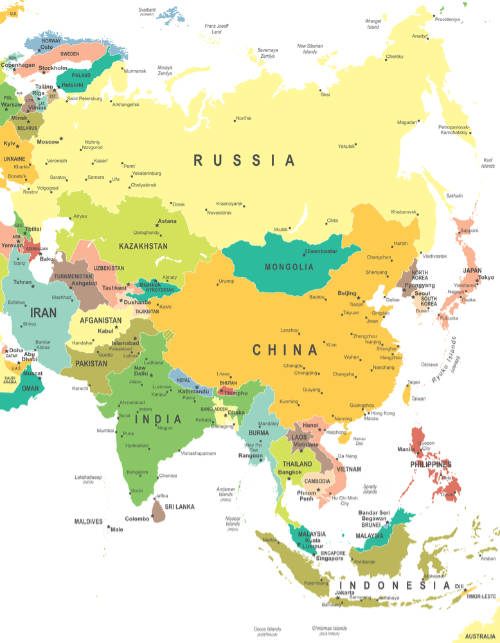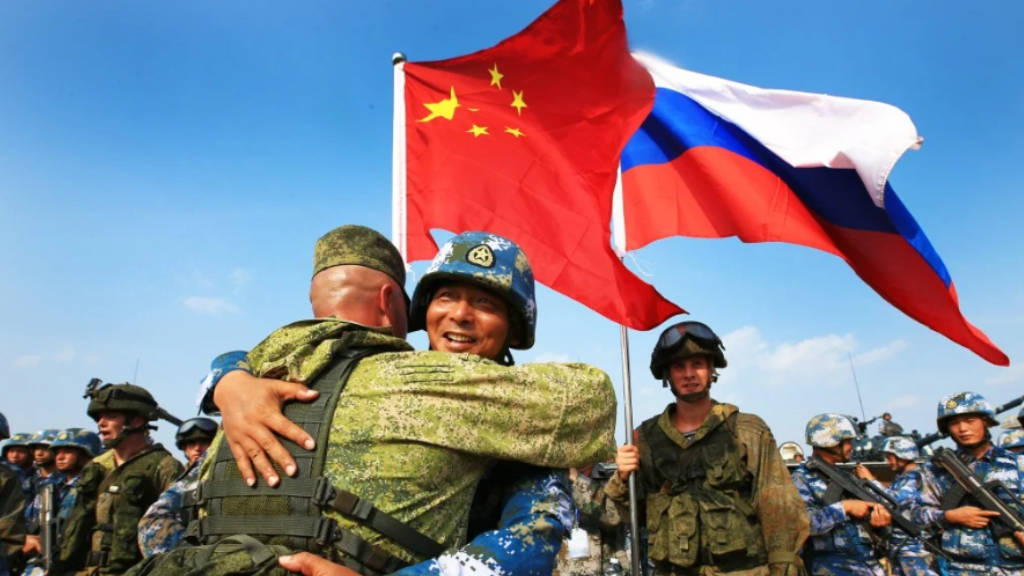The Russian Defence Minister, Andrei Belousov, has met with Dong Jun, his Chinese counterpart, in Beijing on Monday (October 14). The meeting comes two days after the culmination of the East Asia Summit which China, Russia, and the United States all participated in together with numerous Asian countries. Russia has expressed immediate alarm about American plans to militarise the region.
Dong told Belousov that the two countries’ militaries should “deepen strategic collaboration”, stating that “The two militaries should follow the direction set by their leaders, deepen strategic collaboration… and continuously advance military relations. Under the strong leadership of President Xi Jinping and President Putin, China-Russia relations have reached an all-time high, serving as a model for major power relations.”
Belousov stated that “Military cooperation between Russia and China is a key element in maintaining global and regional stability. I am confident that our discussions will further strengthen the Russia-China strategic partnership in the defence sector.”
Last month, Russian and Chinese warships carried out joint drills in the Sea of Japan, part of a major naval exercise that Putin said was the largest of its kind for three decades. During the East Asia Summit, Japan had signalled its intention to expand its own military and align it with United States policy.
China and Russia meanwhile declared a “no limits” partnership shortly before Moscow launched its attack on Ukraine and have carried out a series of military drills together since. President Vladimir Putin said in August that Russia’s economic and trade links with China were “yielding results”, and that the two were working on joint “economic and humanitarian” projects.
How far Russian and Chinese military collaboration will extend remains to be seen. The two countries have several contact points in this regard:
- Alleged Chinese support for Russia’s involvement in Ukraine;
- Security support to maintain peace and development in Afghanistan;
- Preventing a collapse of the North Korean regime;
- Potential security support for the Northern Sea Route;
- Potential security support in Africa and Middle East;
- Military support to protect mutual – and especially Chinese – interests in the South China Sea and Southeast Asia in general.

The situation as concerns Japan will be of concern to both Beijing and Moscow, while Beijing also faces intimidation in nearby Taiwan, which has been receiving substantial US weapons infrastructure and deployment. To the West, several ASEAN nations are wary of China’s military strength and especially around the South China Sea area, which Beijing claims as its territory. India is also wary of Chinese intentions in the Indian Ocean and is also developing its naval capabilities.
On the other hand, it is possible that for the first time, joint Russian-Chinese missions could be in future deployed to help keep the peace in other regions, such as supporting of certain government in Africa, Central Asia and the Middle East. This would, if true, mark a change of strategy for Beijing which has been reluctant to see its troops anywhere other than protecting what it sees as its own territory. The Chinese are also not used to see images or news of their soldiers seeing in war zones or being among casualties. How far Beijing feels it needs to go to persuade the Chinese public such steps are becoming necessary is an interesting question.
It is apparent that part of Washington’s policy towards the Asian region is to create military unrest, and to influence parts of Asia against China. With the region also very much now becoming a lifeline for Russian trade interests, securing the entire Eurasian region, in terms of both land and maritime borders is a complex and significant task for both Beijing and Moscow to resolve.
Further Reading
Russian Remarks At The Conclusion Of The East Asia Summit: Q&A and Analysis

 Русский
Русский













